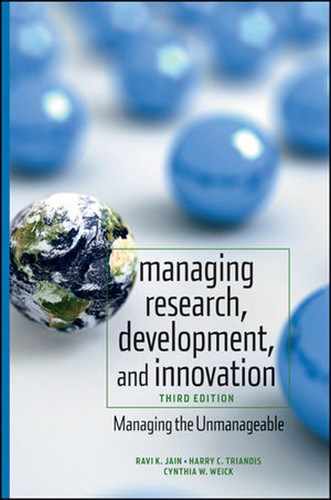3.8. ETHOS OF A SCIENTIFIC COMMUNITY
Commenting on the normative structure of science, Robert Merton (1973, p. 270) stated, "the institutional goal of science is the extension of certified knowledge. The technical methods employed towards this end provide the relevant definition of knowledge: empirically confirmed and logically consistent statements of regularities." He further stated that the ethos of modern science includes universalism, communalism, disinterestedness, and organized skepticism (Merton, 1973, p. 270).
3.8.1. Universalism
This expression suggests that scientific discoveries, whatever their source, are subjected to preestablished impersonal criteria. The truth and scientific value of a scientific discovery is independent of the personal or social background attributes of the individuals. Merton further stated, "universalism finds further expression in the demand that careers be open to talents ... to restrict scientific careers on grounds other than lack of competence is to prejudice the furtherance of knowledge. Free access to scientific pursuits is a functional imperative" (Merton, 1973, p. 272).
3.8.1.1.
3.8.1.1.1. Communalism
Communalism implies that scientific findings should be shared equally among all members of the scientific community. Since findings of science are a product of social collaboration within the scientific community, the ownership of such discoveries is a property of the commons and the rights are assigned to the wider scientific community. Merton (1973, p. 273) suggests that scientific discoveries
... constitute a common heritage in which the equity of the individual producer is severely limited.... Property rights in science are whittled down to a bare minimum by the rationale of the scientific ethic. The scientist's claim to "his" intellectual "property" is limited to that of recognition and esteem which, if the institution functions with a modicum of efficiency, is roughly commensurate with the significance of the increments brought to the common fund of knowledge.
3.8.1.1.2. Disinterestedness
Merton (1973, p. 276) has stated:
A passion for knowledge, idle curiosity, altruistic concern with the benefit to humanity, and a host of other special motives have been attributed to the scientist. The question for distinctive motives appears to have been misdirected. It is rather a distinctive pattern of institutional control of a wide range of motives which characterizes the behavior of scientists.... The demand for disinterestedness has a firm basis in the public and testable character of science and this circumstance, it may be supposed, has contributed to the integrity of men of science.
Scientists make few spurious claims, and, in fact, they would be ineffective since much of what is produced by scientists undergoes scrutiny, replication, and review by fellow scientists. Since scientists do not personally benefit from many of these discoveries, disinterestedness (in terms of commercial or financial benefits) forms an important characteristic of the scientific community.
3.8.1.1.3. Organized Skepticism
Organized skepticism is interrelated with other characteristics of a scientific community. It is both a methodological and institutional mandate. This involves a temporary suspension of judgment and the detached scrutiny of scientific discoveries. Numerous scientific conferences and meetings held throughout the world embody many of the characteristics described here.
In many ways, in a modern society, it has become possible to further strengthen these characteristics due to the ease of communication among scientists. Fostering this ethos is essential for productivity and excellence in an R&D organization.
The ethos of the scientific community, as is the case with such principles, can never be universally achieved in practice. As Bok (1984) has stated, the force of competition, lure of prizes, and fame, among other things, can have some negative effects on this ethos. Over the years, nonetheless, the peer review and refereed publication process and the universal nature of science has helped to make these aspects of ethos the norms of the scientific community.
Discussing the rationality of science, Newton-Smith (1981, p. 44) states: "According to Popper, truth is the aim of science. But the scientific condition is one of ignorance.... Popper's thesis of the utter inaccessibility of truth leads him to reconstrue the goals of science as that of achieving a better approximation to the truth, or as he calls it, a higher degree of verisimilitude." For Popper, when an experiment turns out as the hypothesis predicted, this only means that the hypothesis has not been refuted. Popper asserts that positive evidence favoring a hypothesis does not necessarily constitute evidence in its favor (Newton-Smith, 1981, p. 45).
Some science historians would argue that science does not and cannot get hold of the "truth" in any objective and impersonal sense (Regis, 1987, p. 217). Ed Witten, one of the inventors of the superstring theory, suggests that whether we get to the "truth" or not, we learn new things as we develop new theories. He suggests that as we learn new things, "We develop more powerful laws, laws that unify principles and give us more accurate descriptions of more and more phenomena. It doesn't mean that the old stuff was wrong. It just wasn't complete" (Regis, 1987, p. 211). Basically, new discoveries mean we know more than we did before, and it is a step forward.
